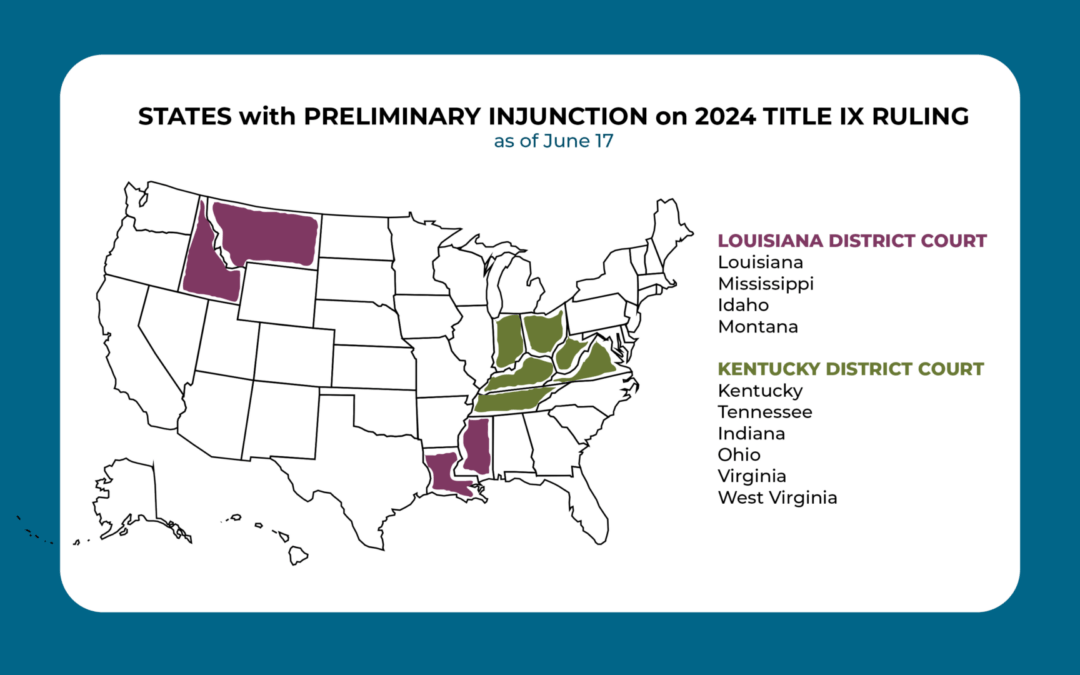By Joseph Storch
In a case brought by the State of Tennessee, joined by the States of Kentucky, Ohio, Indiana, Virginia, and West Virginia (alongside certain organizations and a student), the District Court in the Eastern District of Kentucky has likewise issued an injunction against the Title IX Rule going into effect, limited to the litigating states. The Court concentrates its analysis on whether including sexual orientation, and primarily gender identity, within the definition of sex discrimination is consistent with Title IX’s original understanding, interferes with other lawful interests (such as the First Amendment, states’ rights, and parental rights) and is arbitrary and capricious. The Court concludes in the affirmative and dismisses the reasoning the Department of Education provides in the Preamble.
The Court notes the work that will be required to change policies and train professionals. Unlike the Courts that considered the question in 2020, this Court finds that these compliance costs justify putting the process on hold while litigation proceeds.
The Court writes about the severability provisions of the Regulations, stating that the “Department contends that, even if the Court grants a preliminary injunction, some of the challenged regulations may remain intact. The undersigned, however, disagrees with this assertion.” The Court finds that the addition of these categories of sex discrimination impacts other sections (citing only to the sexual harassment hostile environment definition) but writing that “the impermissible definition…permeates the remaining regulations” and avers that since the rulemaking was arbitrary and capricious, the entire Regulation is invalid and the Court declines to “excise the portions of [the rule that do not] make any reference to sex discrimination or harassment.”
The Court considers but declines to issue a nationwide injunction, writing that the Sixth Circuit Court of Appeals “has cautioned against granting nationwide injunctions against the federal government” and noting that “clearly there are states that do not want this relief as evidenced by the proposed amicus curiae filing in this case.”
Grand River Solutions will continue to monitor this and other cases and provide briefings and updates as appropriate. Visit the Grand River Solutions New Regs Hub for comprehensive resources or reach out to speak to one of our Regional Directors.

